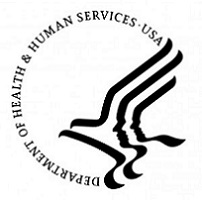 From the Office of the Surgeon General:
From the Office of the Surgeon General:
The realities of our health care system are driving many health workers to burnout. They are at an increased risk for mental health challenges and choosing to leave the health workforce early. They work in distressing environments that strain their physical, emotional, and psychological well-being. This will make it harder for patients to get care when they need it.
“There was a point where I could no longer contain the heartbreak of everyone that had been lost.” Kevin C. from Florida, Nurse
“Something has to change. Something good has to come out of this or it will be for nothing.” Nisha B. from Pennsylvania, Palliative Social Worker
“The primary concern for burnout is not being able to emotionally take care of each patient individually or uniquely.” Derick S. from Nevada, Respiratory Therapist
Key Takeaways from the Advisory
A Surgeon General’s Advisory uses the best available science to shed light on major public health challenges and suggest possible solutions.
Causes of burnout
Workplace systems cause burnout among health workers. There are a range of societal, cultural, structural, and organizational factors that contribute to burnout among health workers. Some examples include: excessive workloads, administrative burdens, limited say in scheduling, and lack of organizational support.
Workforce shortages
Physician demand will continue to grow faster than supply, leading to a shortage of between 54,100 and 139,000 physicians by 2033. The most alarming gaps are expected in primary care and rural communities. (Source: The Association of American Medical Colleges, 2020 )
Differential impacts on health workers
Burnout, resource shortages, and high risk for severe COVID-19 infections have unevenly impacted women and health workers of color. This is due to pre-existing inequities around social determinants of health, exacerbated by the pandemic.
Health worker burnout harms all of us
If not addressed, the health worker burnout crisis will make it harder for patients to get care when they need it, cause health costs to rise, hinder our ability to prepare for the next public health emergency, and worsen health disparities.
How can we take action?
Today, we all have a role to play in preventing health worker burnout. Together, we have the capacity—and the responsibility—to provide our health workforce with all that they need to heal and to thrive.
View additional information and resources from HHS.
